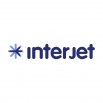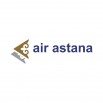Dates & Location
Testimonial
See what our customers are saying
The course was very useful to learn how to create more efficient services for the crew and I broadened my vision on rest periods and duties to grant quality rest for the crew.

Hector Vera
Interjet
I really enjoyed the FRM training. The trainer was well experienced as a pilot and fatigue manager with a great operator. Also his scientific knowledge combined with his operational background made him a valuable instructor. The training materials were very well explained with practical examples.

Eris Buzo, Head of flight operations section
Civil Aviation Authority of Albania
The format of the training is very user-friendly; the content is very good and interesting and helps to understand FRM better. So thank you again!

Dinara Yessenova
The language skills, knowledge and experience of the trainer were an essential part of the training. The fact that he was asking us questions and focused on the individual problems of each participant's organisation enriched the training a lot. Additionally, the extensive practical part of the course enabled the consolidation of knowledge. It's always a pleasure to learn from the best. Keep it up!

Marta Góra


